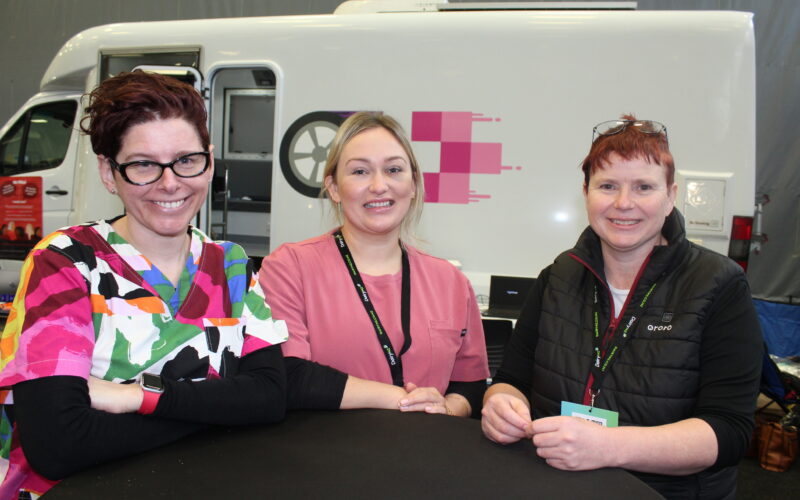The pivotal moment for Dr Helen Paterson was when she realised her gynaecological patient faced a three-hour midwinter drive home after undergoing a medical procedure.
“I thought, ‘I haven’t reduced her [health] risk. I have just increased it.’”
That moment resonated with Paterson until she realised the time had come for her to implement a plan that had been fermenting for some months.
The Dunedin gynaecologist had been considering establishing a mobile clinic to provide diagnostic services for rural women, filling the significant health gap she had identified in Otago and Southland.
Finally, the time was right.
Paterson sold her home and borrowed additional money to buy and outfit a van to provide gynaecological, colposcopy, sexual health and contraception services for women. She called it the Woman’s Health Bus.
“Our starting point was, could we pull up to a shearing shed and provide a clinic?
“The idea is for us to go to communities who invite us to provide care that is needed but to also train health professionals to provide more care.
“Our 10-year plan is to work ourselves out of a job.”
The bus works with Health NZ (Te Whatu Ora) but also provides private clinics in centres such as Clyde, Oamaru, Gore and Queenstown.
In doing so it reduces the time it can take to follow up any abnormal test, identify looming health issues and enable earlier and quicker treatment.
Paterson said the one-to-one interaction also allows them to check potential issues, such as abnormal bleeding or suspected prolapse.
They have discovered issues such as undiagnosed cancer.
“We don’t treat people as a cervix. We treat them as people,” Paterson said.
The bus has also attended events that attract large numbers of rural people, such as shearing competitions. Recently it was at the South Island Dairy Event in Invercargill.
It averages two to three clinics a week.
It is also introducing new technology to be able to take a colposcopy or other samples, process them and provide a result one hour later – a real benefit for a rural health provider.
It has borrowed a machine to perform this role but Paterson hopes to raise $60,000 to buy the bus’s own.
“We really are a rural country,” she said.
“Rural women work on their farms so it is hard to get away, to take a whole day off, which they are required to do to get to a town where these services are offered.”
She quotes a 2016 study that showed that it would cost someone living in Dunedin $80 to undergo a free health procedure in the city. In contrast, someone living in Central Otago and having to travel to Dunedin for the same procedure would face a cost of $800.
Paterson still works part of her time at the University of Otago and Health NZ.
She is assisted on the bus by nurse practitioner Emma Macfarlane and practice nurse Alice van Zijl, who also use their skills to train health professionals in the procedures they offer in rural practices.
Paterson said it is very rewarding work.
“It makes you want to get up in the morning.
“Preventative care is so much better than treatment.”
Word of the health bus is spreading and Paterson said she is getting queries from other rural communities keen to operate their own buses.






